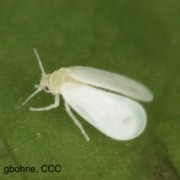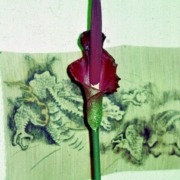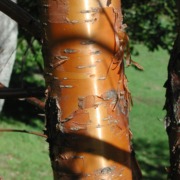THE DARKER SIDE OF TINKERBELL
/0 Comments/in Pests/by Lee ReichThey’re Cute, Though
The bugs is comin’! The bugs is comin’! Just as sure as the sun is rising higher in the sky each day, the hope of spring is awakening all sorts of pesky little buggers on houseplants. One by one, they are showing their faces: mites, aphids, mealybugs, scale insects, and white flies.
I’d actually consider whiteflies — the target of today’s hunt — to be cute if they weren’t plant pests. The same surely could not be said for drab mealybugs and scale insects, or for mites, the latter because you can hardly see them at all. Read more
Read more
AND THE REAL SPLIT-LEAF PHILODENDRON IS. . .
/0 Comments/in Flowers, Fruit, Houseplants/by Lee ReichDoppelgangers
Ask for the real philodendron to stand up and you might be surprised at what plant does not rise. The still-seated plant I’m talking about is Swiss cheese plant (Monstera deliciosa), often called split-leaf philodendron.
Swiss cheese plant is sometimes called split-leaf philodendron, a common name it shares with a true philodendron (Philodendron bipinnatifidum) because both have similar looking, large glossy, incised leaves and aerial roots. Like the real philodendron, Swiss cheese plant also has a hardy disposition within the limitation of being tropical, and tolerates low light, dry air, and neglectful watering as well as do other good houseplants.
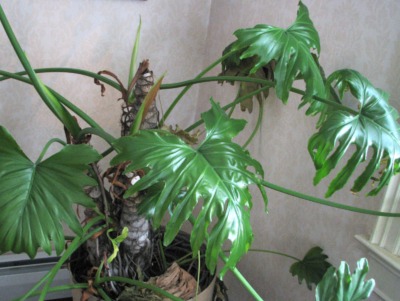
Philodendron bipinnatifidum
Where the cousins part ways visually is in the “Swiss cheese” aspect of the plants. Read more
BARKS OF ANOTHER STRIPE
/5 Comments/in Design/by Lee ReichEven Shrubs (Have) Bark
Hear “bark” and I’ll bet “dog” or “birch” comes to mind. Well, foxes also bark, and the cinnamon brown, flaky bark of paperbark maple is every bit as eye-catching as is the more talked about chalky white bark of birch. Winter is a wonderful time to appreciate plants’ bark.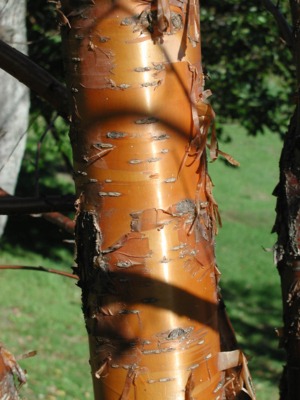
Shrubs never develop trunks thick enough to be swathed in broad expanses of bark, yet a few of them do have notable bark. Read more

